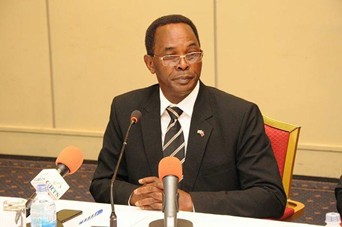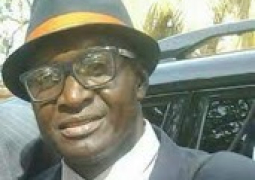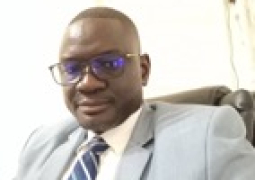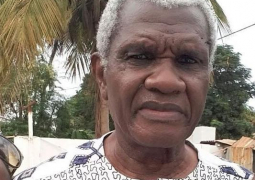
As the Nation approaches the 2026 election year, both the government and the opposition are sensitive to critical thinking and analysis of the state of the Nation and political developments. Yet, it is important to engage minds on this topic because of its political significance in the democratic process. There is no doubt that it will be one of its kind in the election cycle and in political participation. Already, in addition to the existing political parties in the country, there are news of several new parties in the formation process with some of them engaged in underground consultations with the people for the past two years. It will be a real battle of political survival. In a convoluted political atmosphere, the electorates will find it difficult to decide which way to go and for which Party and agenda. Already the over politicization of the Nation has become an obstacle to the unity, diversity, focus and national cohesion. It has also harmed the efficient and effective service delivery as most public officials lacked the qualifications, experience and competence to hold positions of strategic importance in National development. As a result, these officials do not want those who really know to be in the spotlight of governance. The country could have benefitted a lot by tapping into the expertise and technical competences of retired international and national Civil servants and professionals. Hence many missed opportunities for the country by way of advancing the country into greater prosperity. Moving on, it is widely expected that there will be a Coalition of like- minded Political Parties in the run up to the Presidency in the 2026 elections. It has been observed that consultations are ongoing between Parties to this end. The Nation, meanwhile, is worried that no electoral reforms have taken place and IEC Chairmanship has not been determined by the government. This sends the wrong signal in the democratic dispensation. The sooner proactive measures are taken in this regard the better for the national democratic image. Many politicians and civic groups have started to raise doubts about the credibility of the 2026 elections especially in the light of recent moves in the issuance of National documents to Gambians in West Africa and the threats posed by a State Minister concerning violence in the upcoming contest. It is to be stated however, that with the democratic disposition of His Excellency President Adama Barrow over the past years and taken into account his peaceful nature, the Nation can look forward to the conduct of credible, free, fair and transparent elections in the Gambia in 2026. There was no violence as such in the last two Presidential elections. The ruling government will not encourage violence in the 2026 elections. After all, the will of the electorates matters in any elections.
If it were power and money we would not have seen the fall of leadership in the country in 2016 and in a neighboring country in 2024 and elsewhere in Africa. We have also seen the outcomes of the local council elections in Kiang Massembe and in Jokadu. This goes to show that political dynamics could change depending on the vibrancy of contesting political parties and on the kinds of political messages given out to the electorates. After several electoral circles, the people’s political consciousness has been raised. Most likely therefore, the Party that focuses on issues rather than on tribalism will be in a winnable position in 2026 elections. Political realism requires first the evaluation of the political terrain towards the end of the year into mid next year. Gauging the mood of the people or the nation will enhance the state of preparedness of any political party in the country. This is the way to build a strategic framework for political mobilisation in the 2026 elections.
Now, on the current state of the nation, it has been widely said that the crisis moments include, among others, the high cost of living. There are daily complaints of economic hardship. This issue cannot be sidelined as antigovernment sentiments. It is the reality and it needs attention from the authorities. They themselves know the truth and their families know the truth. The tragedy with the Gambia is that those in sweetness of office, do not in many instances tell the truth to power. It is important for the President to make surprise visits to markets, shops, Bantabas, offices, schools and to hear directly from the people their views on the state of the nation. The problem of the Nation is economic management. China is a world power and an advanced economy because China’s development is through a centrally planned and controlled economy. China works on homegrown policies based on their socioeconomic realities. Our development approach is based more on expenditure budgeting and foreign prescriptions of economic management adhered to by disciples of Western education. It is amazing that by the year 2020, China has eradicated poverty. A major reason for the high cost of living apart from the ill-conceived policy advices advanced by some government technocrats, is that the business community in the country is dominated by foreigners who have no mercy on the plight and concerns of the people. This is a country where shopkeepers keep increasing prices of food and other items everyday. The official position on the economy is the appetite for the principles of a liberal and free market economic activities. Therefore, the government seems unable to redress the high cost of living in the country. There are no home grown solutions to the economic exploitation of the people. We did not learn lessons from previous governments. Ex President Jammeh cared less about what the officials told him about the economy. He used interventionist policies to contain inflation and to control the foreign exchange situation. Ex President Jawara created the National Trading Corporation that was mandated to import all essential commodities and to sell them below the market prices so that availability of such goods to the ordinary citizen was possible. The bread and butter issue carries political ramifications. The government must not hesitate to take bold and decisive actions to ensure food security for the people. On the sale of Jammeh Assets, the Russian fuel saga, the widely alleged corruption in the system, the revelations coming from the Local government Inquiry, have all brought anger among Gambians and frustration that concrete actions are yet to be taken to transform the jangling discords of the Nation. This is creating political tensions and all kinds of political fabrications tarnishing the image of government. It is therefore politically expedient for HE the President to flush out of the system all those who brought shame to the Nation in these crisis moments. There must be consequences in governance for wrong doings and for non performance of sectors in service delivery. It is time to enforce public accountability to enhance the image of the government. These are burning issues that the opposition banks on to turn the people away from supporting the ruling government. It will be recalled that HE the President in an official address, had said that the welfare and concerns of the people shall receive priority attention in his government’s development agenda. It is hoped therefore, that he sees it timely and appropriate to reshuffle Cabinet and to bring in those who will add value to his political agenda and desire to bring development and prosperity to the door steps of Gambians. There is no political agreement on a new constitution which harms the legal framework of democratic governance. The 2020 CRC draft constitution which has been rejected by Parliament cannot be reclaimed by the opposition. The 2024 draft government constitution was rejected by the opposition. Between the 1974 and 1997 constitutions, stakeholders can come up with an amended version to reach National Consensus on a new constitution. It is hoped that all Political Parties will see a new constitution as in the supreme interest of the Nation. The experts can be tasked to review the two constitution documents mentioned and to table recommendations before the executive and subsequently to Parliament. The country’s weak diplomatic stewardship has weakened the country’s achievements in the international community. Perhaps, therefore, the Foreign service requires reinvigoration and transition from the conduct of traditional diplomacy which brought no significant dividends to the country to the conduct of economic diplomacy which will focus on investments, projects and development assistance both from development partners and from bilateral cooperation. Foreign policy is based on the National interest. Its pursuit should be conducted in strategic terms. Of course, qualifications, experience, knowledge and competence matters in this context. Unemployment especially among the Youths is high and a burden on the state to find jobs for them. In this regard, home grown solutions are better than exporting labour to countries that are already developed. For example, if 1000 Youths are encouraged to contribute D1,000 each, it will amount to D1 million and they can set up bakery services with the help of the government. Youths can be engaged in Youth Farms for agriculture production in commodities needed by the country. The fisheries sector, tourism sector, construction sector, transportation sector, and other areas in the service sector, can all be avenues to engage the Youths for sustainable development. There must be public accountability and national responsibility for the country to move forward. Government is collective responsibility. Those entrusted with public office and have failed the nation should be held accountable. In this regard, the need for the biggest political shakeup in government services cannot be overemphasized. Now is the time to be in the moment. Despite the country’s crisis moments as per public views and which can be fixed with determined and decisive political will of the incumbent, the ruling NPP government has to its credit, democratic governance and implementation of massive infrastructure and social development projects across the country. The ruling Party could pass the test on the record of its achievements. For other Parties to break this record and to win the hearts and minds of the electorates, will be a challenge of the first magnitude. This is a political reality that cannot be sidelined in the political conscience of the opposition. It will be of interest to the people to hear what other Parties have to offer that will make a difference in the State of the Nation and on various issues in the national discourse. In the fullness of time, Gambians will decide on who should lead the country. The advantages of incumbency can only produce political dividends for the NPP provided the burning issues the country is faced with are seen as challenges that must be addressed before the 2026 elections. There is no doubt that the politics of issues will occupy the political space in 2026.
Read Other Articles In Opinion





